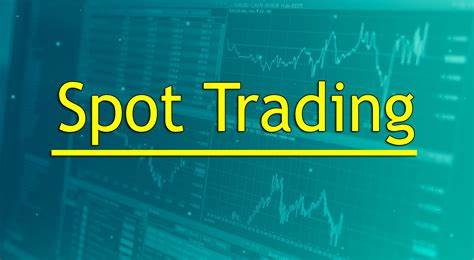Welcome to learn about spot trading as a Muslim, in today’s digital world money markets are more accessible than ever before. For Saudi Arabian Muslim traders, being able to engage in trading more specifically, spot trading can be both a thrilling and righteous experience if carried out in the proper way. Spot trading, when conducted under halal principles, is an open and transparent means of engaging in money markets. But how do you, as a Muslim trader, get started safely in Saudi Arabia?
This guide will walk you through all you need to know what spot trading is, how to remain within halal guidelines, how to choose the right platforms, and how to protect your financial well-being while trading.
Table of Contents
What Is Spot Trading?

Read Also: what is spot trading in crypto and why it matters for beginners
Spot trading is buying or selling an asset for immediate delivery. In other words, you pay and receive the asset on the spot, thus why the name is spot trading.
In forex and cryptocurrency, this means:
- You buy a currency or a coin at the current market price.
- Transfer of ownership of the asset happens instantly.
- No borrowing, no interest, and no future obligation.
This is quite different from margin trading or futures, which will have leverage and interest (riba) something that is prohibited under Islam.
As it is direct and immediate, spot trading can be halal but only if it is done properly.
Is Spot Trading Halal?
YES, Spot trading is halal if it meets the conditions to perform under Shariah conditions. Following are the reasons why it may be permitted:
- No Riba (Interest)
Spot trading is the payment of the asset in full without taking an interest-bearing loan. Do not use platforms that offer margin or leverage unless these can be turned off completely. - Immediate Ownership and Delivery
In Islamic finance, a sale must have a clear transfer of ownership. When you are doing spot trading, there is immediate transfer, which meets this condition. - No Gharar (Too Much Uncertainty)
Shariah law does not permit highly speculative transactions. When you are doing spot trading, you are buying something you can see, at a price you agree on, with no terms and conditions in the background, so it’s transparent and less risky. - Trading Halal Assets
Make sure the assets you’re trading are not from haram industries such as alcohol, gambling, or interest-based finance.
Tip: Do your research on the project or currency you’re investing in. Invest in assets that are ethically aligned.
Why Saudi Arabia Is a Great Place to Start Spot Trading
Saudi Arabia has been embracing fintech and online investment while ensuring that it is aligned with Islamic values. Here’s why it is a perfect location for halal spot trading:
Regulation and Supervision
The Saudi Central Bank (SAMA) and Capital Market Authority (CMA) see to it that financial platforms are operated fairly and transparently.
Financial Inclusion
More people now have access to online trading platforms, including the youth and women, thanks to user-friendly mobile apps and tutorial materials.
Cultural Alignment
The rise of Islamic finance has led to the establishment of halal stock markets for Muslim investors.
Step-by-Step: How to Start Spot Trading Safely in Saudi Arabia
- Learn and Educate Yourself
Be slow and learn the basics first before diving into trading. The following are things to learn:
- What is spot trading?
- How do crypto and forex markets operate?
- What are Islamic finance principles of trading?
- Risk management and avoiding emotional decisions.
There are English and Arabic free and paid tutorials. Look for those from credible sources, especially those that have Islamic finance compliance.
2. Look for a Halal-Compliant Trading Platform
Some platforms offer Islamic or Shariah-compliant accounts. Considerations:
- Exclusive spot trading (no futures and no margin by default)
- No interest-based accounts
- Clear fee structure
- Conformity to local laws
Platforms used in Saudi Arabia:
- Binance (with a spot-only account and trading limitations)
- Rain: A Gulf-based exchange with strong compliance
- CoinMENA: Bahrain-registered and GCC-compliant
- Bank or licensed fintech startup local exchange services
Read More: How to Identify Halal Crypto Projects Before You Invest
Always check whether the platform is licensed by the CMA or SAMA.
- Fund Your Account Safely
After your trading account has been confirmed:
- Fund your wallet with halal profits.
- Do not trade using borrowed money.
- Only transfer what you can afford to lose.
Find websites that facilitate bank transfers in SAR (Saudi Riyal) to escape fees.
4. Select Halal Assets
When choosing what to trade:
- Consider cryptos with real-world uses like Bitcoin (BTC), Ethereum (ETH), and others recognized as halal by experts.
- Never choose meme coins or tokens that have gambling, interest, or adult content.
- Use Islamic finance screeners if you are trading stocks or forex.
5. Create a Simple Plan
Spot trading doesn’t require complex arrangements. Beginners, start with:
- Buy-and-hold: Purchase an asset and hold it long term.
- Swing trading: Purchase when prices fall, sell when they rise (without speculation).
- Stop-losses to avoid large losses.
- Avoid panic-selling on small falls; consider trends.
Remember always: Trading is not gambling. It’s a choice or decision based on research.
Islamic Ethics in Trading
Islam is not against wealth, but it teaches us to gain it fairly and ethically. The following are some of the most crucial values to practice as a Muslim trader:
- Honesty and Transparency
Do not mislead others or distort the market. Steer clear of pump-and-dump clubs or fraud that guarantees returns. - Avoiding Greed
Neglecting to make instant profits may affect your decision-making skills. Trade patiently and disciplined. - Zakat on Profits
If your trading profits cross the nisab and you’ve held them for a lunar year, calculate and pay zakat (2.5%) on your savings. - Dua and Tawakkul
Do your research but also rely on Allah. Make du’a for barakah in your earnings and ask for protection from haram income.
Smart Risk Management for Safe Trading
Spot trading is dangerous. Here’s how you stay safe:
1. Never Invest More Than You Can Afford to Lose
That’s the golden rule. Trade only disposable money; not your rent, food, or emergency fund.
2. Use Risk Management Tools
- Stop-loss orders
- Limit orders
- Daily trading limits
These minimize surprises.
3. Keep Emotions in Check
Fear and greed are your enemies in trading. Be disciplined and don’t trade on instinct.
4. Monitor Your Trades
Keep a basic notebook with:
•What you bought
•Why you bought it
•What your goal is
•Result and reflection
This helps you improve over time and recognize mistakes.
Bonus: Common Mistakes to Avoid

Even seasoned traders do make mistakes. As a young Muslim trader, be particularly cautious about:
- Accidentally using leverage or margin
- Ignoring fees that eat into profits
- Being swayed by hype of new coins without due research
- Overtrading on hopes of making a quick fortune
- Trading on speculation like gambling
Halal Resources for Muslim Traders
To improve your understanding, the following study materials are advised:
• Books:
- Introduction to Islamic Finance” by Mufti Taqi Usmani
- Islamic Finance: Law, Economics, and Practice” by Mahmoud El-Gamal
• Websites:
- IslamicFinanceGuru.com
- IFG Halal Crypto List
- Muftis and scholars’ lectures on Islamic trading available on YouTube
• Courses:
- Islamic finance certification by Ethica or CIMA
- Binance Academy crypto trading basics
Final Thoughts: Trade With Taqwa
As a Muslim trader in Saudi Arabia, you’re in a unique position to combine faith with financial wisdom. Spot trading when done right offers a way to grow your wealth in a halal, ethical, and transparent manner.
It’s not about getting wealthy overnight. It’s about being dependable, predictable, and making money decisions according to Islamic standards.
Remember:
“And Allah has made trade permissible and forbidden interest.” Surah Al-Baqarah (2:275)
ٱلَّذِينَ يَأْكُلُونَ ٱلرِّبَوٰا۟ لَا يَقُومُونَ إِلَّا كَمَا يَقُومُ ٱلَّذِى يَتَخَبَّطُهُ ٱلشَّيْطَـٰنُ مِنَ ٱلْمَسِّ ۚ ذَٰلِكَ بِأَنَّهُمْ قَالُوٓا۟ إِنَّمَا ٱلْبَيْعُ مِثْلُ ٱلرِّبَوٰا۟ ۗ وَأَحَلَّ ٱللَّهُ ٱلْبَيْعَ وَحَرَّمَ ٱلرِّبَوٰا۟ ۚ فَمَن جَآءَهُۥ مَوْعِظَةٌۭ مِّن رَّبِّهِۦ فَٱنتَهَىٰ فَلَهُۥ مَا سَلَفَ وَأَمْرُهُۥٓ إِلَى ٱللَّهِ ۖ وَمَنْ عَادَ فَأُو۟لَـٰٓئِكَ أَصْحَـٰبُ ٱلنَّارِ ۖ هُمْ فِيهَا خَـٰلِدُونَ ٢٧٥
“Those who consume interest will stand ˹on Judgment Day˺ like those driven to madness by Satan’s touch. That is because they say, “Trade is no different than interest.” But Allah has permitted trading and forbidden interest. Whoever refrains after having received warning from their Lord may keep their previous gains, and their case is left to Allah. As for those who persist, it is they who will be the residents of the Fire. They will be there forever.”
Surah Al-Baqarah – 275 – Quran.com
Therefore, step forward with knowledge, prudence, and confidence and let your halal trade be blessed with barakah and harmony.
